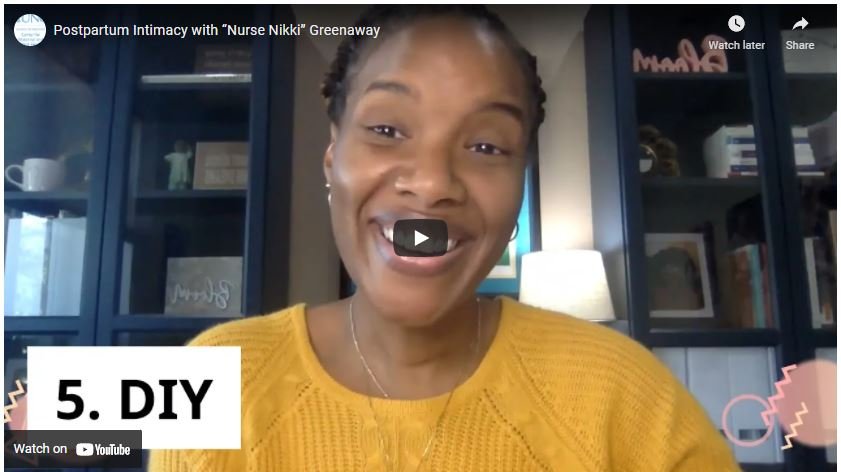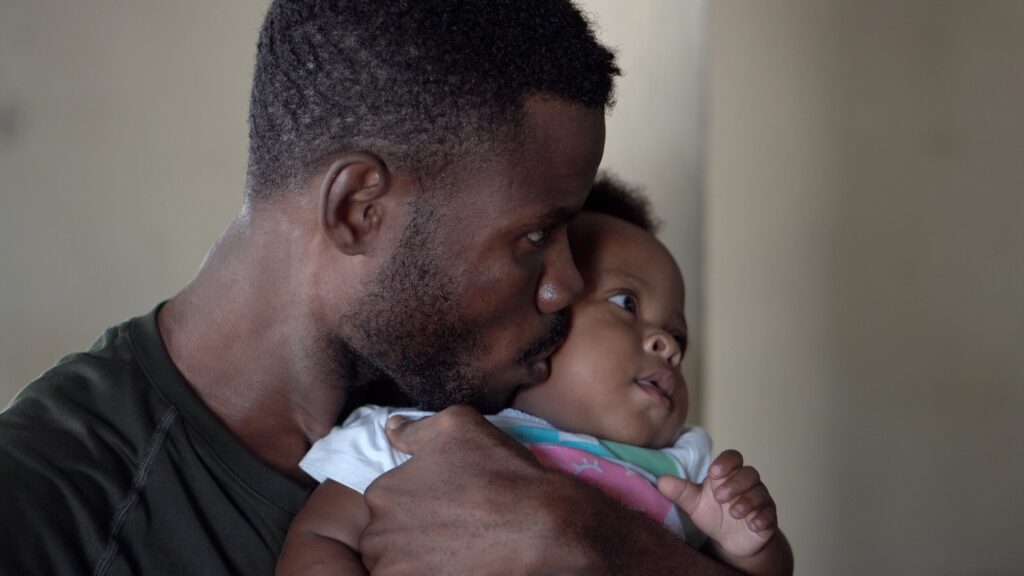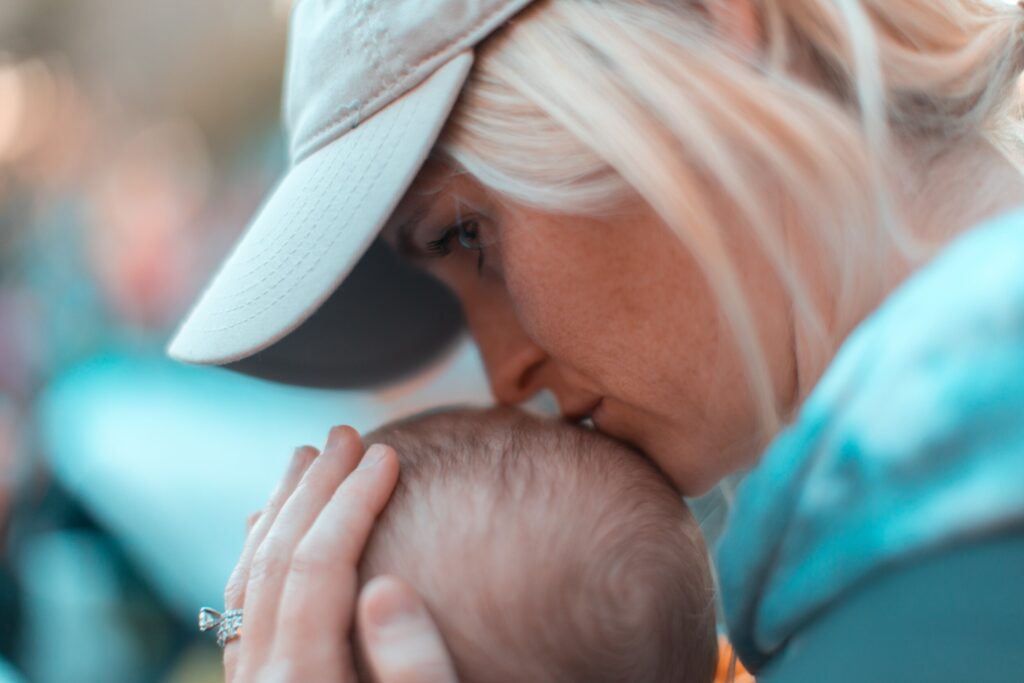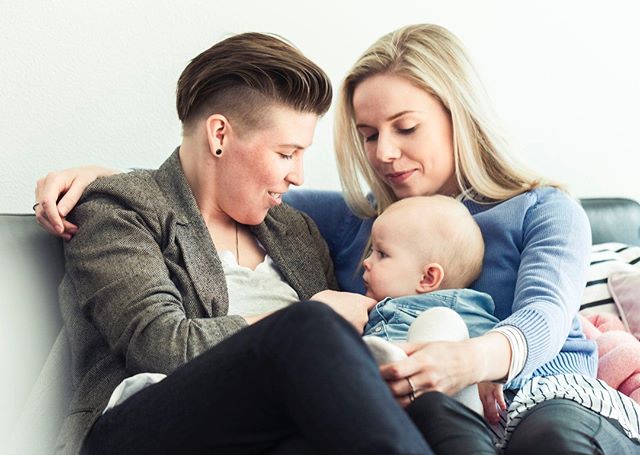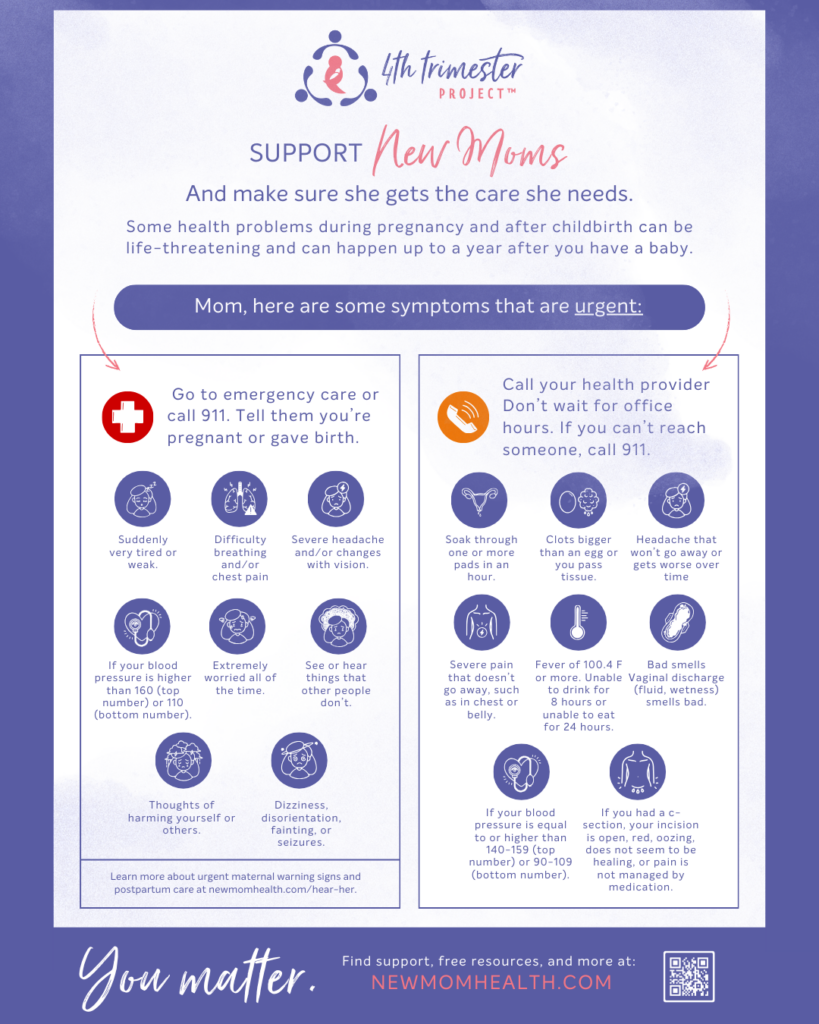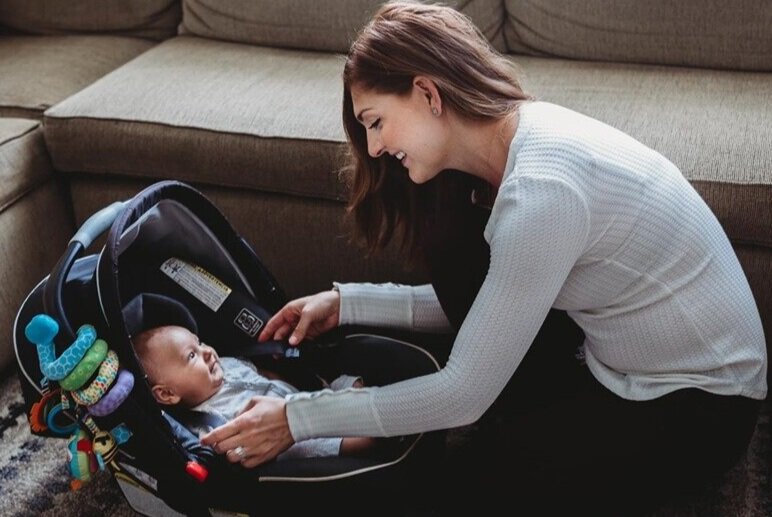
It is common for mothers to want to be the main caretaker of their newborns. New moms are very connected to their infants, especially during the 4th Trimester. Many mothers struggle to leave their baby to the care of others, even from people they trust and love deeply. It can be scary or upsetting to allow someone else to care for your baby, including the baby’s other parent.
At the same time: it can be very exhausting to be the ‘default parent.’ We aren’t meant to parent alone. We need a village of support. There can be a lot of reasons a mother feels worried or anxious about having baby out of sight. Find out if there is something more there to address, or if there are simple ways to slowly let both parents (fathers, co-parents, caretakers) feel secure with baby on their own.
Here are some tips for new moms to build trust with others caring for baby:
- Align on your parenting strategies: Have open conversations about how you and your partner view caregiving. Try to identify points of agreement, and mindfully talk about points of disagreement. It is helpful to understand where both of you are coming from as you begin caring for the baby, as individuals and as a couple. In fact, coming to this understanding is helpful before the baby is even born. If you had a child or children with a previous partner, consider how those experiences might influence how you view and approach parenting with your current partner. Allow room for things to be done differently than they were done in the past.
- Give them space to parent their way: Just because the way they are parenting, doesn’t mean it is necessarily wrong. Give them space to figure it out their own way. You can start small by asking your partner to hold and care for the baby while you’re home. Snuggle time offers a bonding opportunity and also helps partners build skills in calming the baby. Diaper changes are an excellent place to start, and there is room for a whole lot of practice! The catch: don’t hover. You partner will need to build confidence in themselves and find their own way to care for their child. It is likely your partner will do things differently than you, but it is important for your baby and partner to learn, grow, and bond together. Just as new moms rely on others to help build their own confidence as parents, your partner needs to hear from you when they do something right.
- Quick trips build trust! If you would like time on your own or with another child, you can try playing in a different room, going for a walk, or running a quick errand to give your partner and baby space. While you are gone, you can ask your partner to send photos or set up a video chat between you and your baby. Building a support system that you know is safe and trustworthy is key! In a way that works for you and your baby, you can increase the amount of time you’re gone and distance you are comfortable leaving.
- Provide resources for parenting support: Educating and communicating about why you want something a certain way is key for following through! if you have concerns about safe sleep, vehicle safety, feeding, etc., typically providing education about the importance of those topics and steps to address them will help you both understand and know what to do.
- Boundaries for safety: be clear about your non-negotiables to keep yourself sane and baby safe. Be sure you both know those ahead of time. It could be people or pets they should not be around, places to avoid, things you want to be in charge of, etc.
Tip! Consider getting your partner a sling to carry baby. Slings, wraps, and carriers can lighten the load for caregivers. If you and your partner have different body shapes, you may need different carriers. Look for a baby wearing group or a baby store in your community where you can try on different carriers and find a size and shape that fits.
By creating space for the people close to you to care for the baby, you are building your child’s “village”; children thrive when they have a community of caring others. Your loved ones can bond with baby, both when you are present and not.
Resources:
Addressing any anxieties / OCD around caring for baby
https://raisingchildren.net.au/grown-ups/family-diversity/co-parenting/co-parenting
Between Two Homes: A Coparenting Handbook
Mom’s House, Dad’s House (Kid’s version also available)

